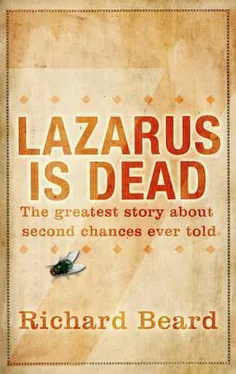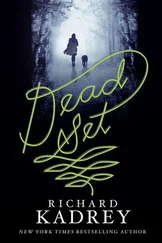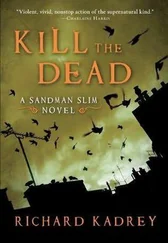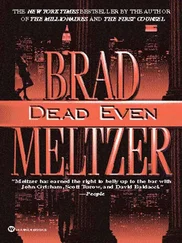No one but Cassius acknowledges the presence of Lazarus. The last witnesses give up their wait for a miracle. Jesus is not the messiah, and therefore none of the stories were true. Lazarus is not true. He can safely be ignored.
‘Only you have vanquished death,’ Cassius says. ‘It must feel like being chosen.’
Lazarus questions his purpose on earth, as he has done every day since he emerged from the tomb. Usefully, he has acted as a distraction to the authorities, allowing Jesus an extra week to preach in Jerusalem. He has consoled Jesus in his last living hours, and that is a wonderful thing to have done. But what is he for next, what is he for now?
‘Someone will have to take up his work,’ Cassius says.
‘Jesus is dead. It is finished.’
‘For him, yes. One messiah at a time is enough.’
Lazarus spends Friday night on the hill, outside the city walls. Golgotha is an area of tombs and quarries, with access routes and steps joining the various levels. The bare olive trees make twisted silhouettes on the ridge line.
He sits with his arms round his knees, and in the night-time the tiniest incidents are possible visits from god. Every breath of wind is a sign, as is the sand chasing its tail over a moonlit rock. He listens for restless demons, for strays sweeping across the empty spaces, and for jackals, wolves, lions. He imagines himself in the wilderness like a lost prophet, waiting for the word of god.
Yanav sits down beside him. He has instructions from Cassius to encourage the notion that only a messiah can come back to life. It is written in the scriptures. He should suggest that a messiah with a genuine commitment to the Judaean people would listen carefully to Rome.
‘Jesus was an interesting man,’ Yanav says. ‘I liked him. What he did for you was miraculous.’
‘I know.’
The two men sit side by side, not speaking. Yanav hates getting involved with religion. He heals the devout and they tell him that god is working through a healer. Which may be true, but the faithful should appreciate that Yanav is an important part of the process. If it weren’t for him, Lazarus would have died months earlier. He’d have muddled the timings of god.
Until today’s crucifixion, Yanav had preferred the coherent thinking of the Romans. He admires them for their trust in observable cause and effect. He has believed, on balance, that the Roman version of progress is preferable to any other. Now he’s not so sure.
The heavy clouds of earlier in the day have cleared. The moon is out, and on its surface is the familiar blurred image of Cain slaying Abel.
‘What does it all mean?’ Lazarus asks.
Yanav picks out the stars in their fixed, impenetrable patterns. He has his instructions from Cassius, but he chooses to disobey them.
‘Lazarus, let me help you. Demons are trickier than anyone can imagine. They’ve possessed you once and they’ll want you again. You’ll need my expertise.’
‘I don’t think so. I came back to life. I don’t feel at risk.’
A shooting star grazes the night sky. The gods are up to something. Yanav saw the signs in Jesus when he heard that Lazarus was sick, and again when Lazarus stumbled from the tomb. Whatever the gods have in mind, Yanav doesn’t trust them to do it without consequences. He does trust them, being gods, to get it done.
‘Don’t stay in Jerusalem, not after this. I’m travelling south. You can be my assistant.’
‘I should stay.’
‘My partner, then. We’ll split whatever we earn.’
‘I can’t. What about Mary and Martha? And Lydia. I have too many reasons to stay.’
‘And one big reason to leave. Cassius has plans for you. He’ll expect you to teach.’
‘He thinks people will want to follow me.’
‘And prophesy. That’s a basic requirement of the job he has in mind. Can you read the future?’
‘As well as Jesus could.’ Lazarus looks towards the knuckled olives on the brow of the hill.
‘The healing, the signs, the wonders,’ Yanav goes on. ‘He wants more from you than you can give.’
‘You could stay and help me. Especially with the healing. We could work it out together.’
‘Did you hear about the boy from Nain? Yes, the dead one. Resurrection doesn’t have to end happily.’
‘He didn’t have the support of the Romans.’
‘Leave while you can. Tonight. Be gone by the morning. That’s my honest advice.’
3
Saturday is the Jewish Sabbath. Lazarus is woken by sunshine over the walls of Jerusalem, and the sun rising day after day is astonishing. Yanav is nowhere to be seen.
Sabbath restrictions mean that not many Judaeans will venture from the city to the tombs on a Saturday, and for an executed criminal like Jesus there is neither mourning nor wailing. Instead, Lazarus hears a noise that reminds him of his father in Nazareth: mallet on chisel on stone. A steady, determined tap.
He goes to investigate the sound out of curiosity, but with no clearer ideas than that. He wishes he and Jesus had talked more. Like everyone left behind, he regrets not asking more explicitly for guidance while Jesus was alive.
The Romans ignore the Sabbath. Conscripted soldiers chisel at the edges of the stone that closes the tomb of Jesus. They widen the join so that mortar can be plugged into the gap, to seal the entrance. Jesus is buried in a small, single-chamber tomb, and their work will soon be done.
‘We’re making certain,’ Cassius says. ‘No tricks this time, no pre-planned miracles.’
‘So you’re back on duty?’
‘No one else knew what to do.’
Rome’s defeated enemies will stay dead. There are few truths more essential to the sustainability of the empire. ‘It won’t happen twice.’
‘Is that what you’re expecting?’
‘Everyone saw Jesus die. He’s not coming back.’
‘You have Roman soldiers tending a corpse.’
‘I know,’ Cassius says. ‘A complete waste of time and a perfect job for the military. How did you sleep?’
‘How do you think?’
Mary is approaching from the direction of the tented pilgrim encampment to the north of the city. Her eyes are red from weeping, and when she sees Lazarus she bursts into tears and runs headlong towards him. She throws herself at his feet.
‘I knew you’d be here.’ She hugs his legs and crushes her cheek against his knees. ‘Do what you have to do.’
Christians usually interpret Lazarus as a prefiguring of Jesus, who is Christ. This is the purpose of Lazarus’s life, for those who believe in his literal existence, and his narrative function in the bible for those who don’t. The death and resurrection of Lazarus foreshadow those of Jesus, and of all the dead to come.
Yet Jesus Christians (those who believe that Jesus is Christ) rarely appreciate the full extent of the advance work performed by Lazarus. In the history of their friendship, Lazarus always goes first. He suffers and dies first. He grieves first and disbelieves in god and leaves home first.
Jesus watches and learns. He will not be leaving his tomb after only one day. Too soon. He knows this from Jairus’s daughter, and even after the violence of a crucifixion he will want to avert suspicion that he simply fell unconscious. At the other extreme, Lazarus was dead for four days. Too long. Four days invites awkward side issues, like the smell. Lazarus is the trial and Lazarus is the error. He enables Jesus to identify the ideal period to be dead before coming back.
Mary can’t be expected to know this. Like anybody aggrieved by the death of a loved one, she wants him back immediately.
Mary takes her brother by the hand. ‘You know what you have to do.’
I could be happy as a favoured son of god, Lazarus thinks. He alone has survived death and burial, and returned fresh from the dead: his childhood passion for the scripture heroes was in fact an education. God was watching, and god has plans for him.
Читать дальше












